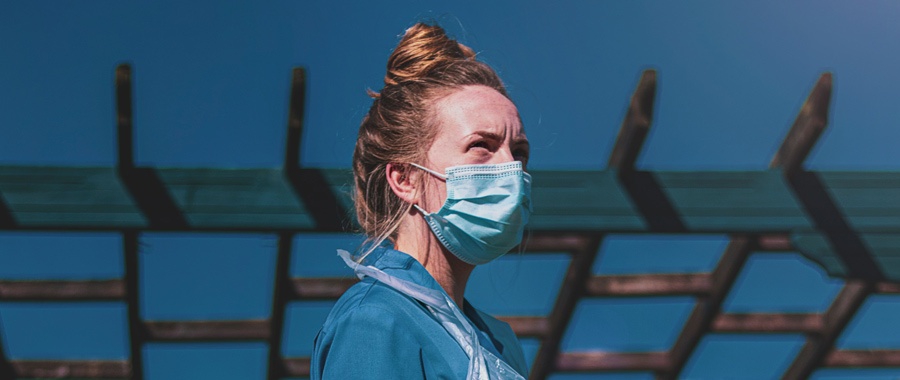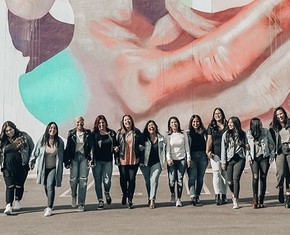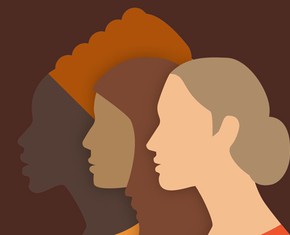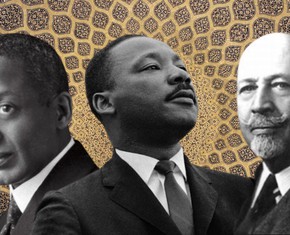The views expressed in our content reflect individual perspectives and do not represent the authoritative views of the Baha'i Faith.
It can be difficult to stay hopeful during this pandemic, but no one faces a greater challenge than the doctors who face the crisis at work every day. How do they stay hopeful?
As we practice social distancing to prevent the spread of COVID-19, our thoughts are constantly with these health professionals who continue to work in order to offer healing and support to those suffering from the virus. We know how difficult it can be to stay hopeful watching the pandemic play out from the comfort of our own homes; it must be so much harder for a doctor working on the frontlines.
I reached out to four doctors and asked them to share what gives them hope, and what they do to stay hopeful.
We Will Get Through This
Andrew Asare, a Massachusetts doctor who comes in contact with COVID-19 patients daily, has found that reading helps him feel hope. “For strength and perspective I find myself reading the ‘Citadel of Faith,’ he says, referring to the book by Shoghi Effendi, the Guardian of the Baha’i Faith. An excerpt of “Citadel of Faith” that Andrew finds himself reading states: “However severe the storms which may buffet it in the days to come in either hemisphere, however sweeping the changes which the impact of cataclysmic forces from without… that great republic… will continue to evolve, undivided and undefeatable.”
“It’s so appropriate in these times and gets me through the day. We will get through this and hopefully gain more wisdom as to what is really important in life,” Andrew says.
Sheida Maher, a medical resident in child and youth psychiatry based in Santiago, Chile, has also found refuge in the Baha’i Writings as the coronavirus affects her practice — particularly from the book “The Promised Day Has Come.” In it, Shoghi Effendi spoke about two different processes: one that “signalizes the death pangs of an order” that “is being rolled up, and is crashing in oppression, bloodshed, and ruin,” and another that “proclaims the birth pangs of an Order, divine and redemptive, that will inevitably supplant the former.” This second process “opens up vistas of a justice, a unity, a peace, a culture, such as no age has ever seen.”
“It has given me the certainty that everything that is happening, is happening for a reason,” Sheida says. “It’s part of bigger plan, and even though the situation is sad and difficult, things will get better.” She also drew hope from the March 2020 message from the international governing body of the Baha’i Faith, the Universal House of Justice, addressing this pandemic:
However difficult matters are at present, and however close to the limits of their endurance some sections of societies are brought, humanity will ultimately pass through this ordeal, and it will emerge on the other side with greater insight and with a deeper appreciation of its inherent oneness and interdependence.
“It was very comforting to read,” Sheida says. “No matter how intense this crisis becomes, humanity will come out the other side stronger and with greater conviction of its oneness.”
Faith in Humanity’s Capacity
Adeeb Zaer, an emergency medicine physician working in Chicago, says he’s found hope in seeing how people have reacted to their new circumstances. “I have seen hidden talents and creativity from so many people trying to do their part, that I can see glimpses of the potential power of the world when their energies are focused on one common cause.
“You can see it in the teachers who are quickly adapting lesson plans to be online, a local physician who is now creating innovative medical technology to be used in our emergency departments, graphic designers using their 3-D printers for medical devices, engineers using their company’s resources to help those suffering across the globe, friends learning how to sew to help with the need for cloth masks, communities learning ways to support each other through distance, food services and grocery stores repurposing how they function, artists bringing joy and creativity with minimal assistance — and the list goes on,” Adeeb says. “I’m lucky to be able to contribute through my profession, but it is even more impressive to me for those who go out of their comfort zone and explore what is possible when the need is great.”
Daniela Pimentel, a medical resident in Worcester, Massachusetts, says she also finds hope in seeing how “people are standing up for each other and working as a team,” particularly how they have been helping healthcare providers.
“It is well-known to the community that there is a shortage of personal protective equipment, and this puts both us healthcare workers and the patients we treat at risk of falling ill with COVID-19,” Daniela says. “Everyone is stepping in and helping out however they can. People are making and donating homemade facemasks, face shields, and headbands with buttons to protect our ears from prolonged face mask use. Restaurants and coffee shops are coming to our hospital to donate food and free coffee for healthcare workers.”
“At the beginning of this pandemic, it was also encouraging to see how some people became concerned about the severity of this illness even before the U.S. government actually acknowledged for this to be a public health emergency and began social distancing early on,” Daniela says. “I am also inspired by healthcare providers around the world who have tackled the effects of this pandemic, having helped heal from COVID-19 now thousands of people in different countries. They truly are my heroes.”
















Comments
Sign in or create an account
Continue with Googleor